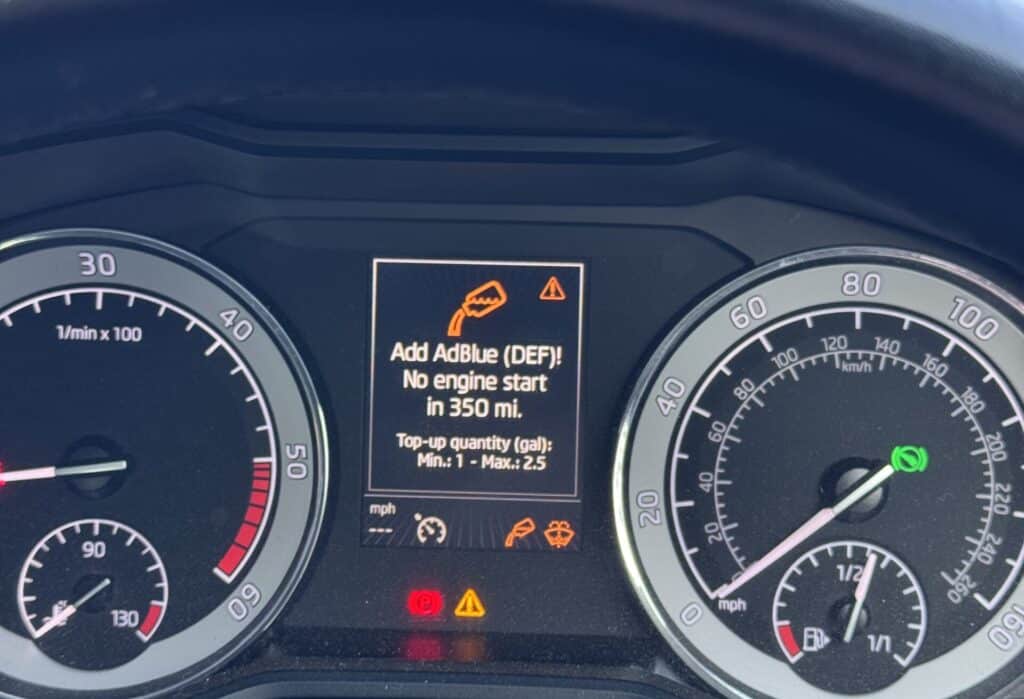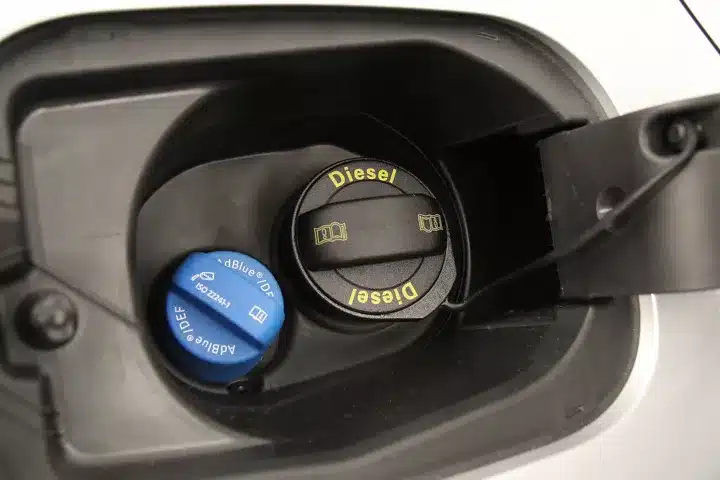professional tuners
AdBlue Delete or Fix Kent.
Book your mobile AdBlue Delete remap today and remove your car’s AdBlue faults!



250+ Client Trust Us
WE COME TO YOU!
FROM £265 SALE NOW ON! |
Please read AdBlue delete terms and conditions at the bottom of this page.
AdBlue Delete and Fix
Over 14 years experience in the tuning industry.
Adblue Delete Files
Our AdBlue delete files supplied by one of the UK's most trusted tuners - JF Automotive.
No More Faults
Our AdBlue delete service will remove all faults from the AdBlue system.
How does it Work?
You’re only 6 steps away from a tune.
1
Book Online
2
Technician Arrvies
3
Diagnostics Health Check
4
Read ECU Data
5
Upload Modified Data (Tune)
6
Road Test & Complete
We offer 2 AdBlue Solutions - Repair or Delete!
AdBlue Delete
We come to you! We first read the the engine ECU data using our specialist tools. We then apply a AdBlue patch to the software that basically turns off the AdBlue from working. This also includes all the faults or dashboard warning messages.
AdBlue Repair
We first can carry out diagnostics and then quote to fix the AdBlue system. This would require you to visit JF Automotive workshops in Maidstone, Kent.
GET MY PRICE.

Why Choose Remaps UK for an AdBlue Delete?
Struggling with AdBlue system issues? Remaps UK offers mobile AdBlue delete and fix services across Kent and the South East, solving your problems right at your doorstep. Whether you are in Maidstone, Kent or the South East of UK – we come to you. Our custom solutions get your vehicle running smoothly again, saving you time and repair costs.
Book your AdBlue delete or fix today with Remaps UK, Kent’s trusted mobile tuning specialists, fully insured for your peace of mind.
- Pre-Developed Tuning
- Money Back Guarantee
- Mobile Service
- Vehicle Health Check
- Fully Insured
- Over 14 Years Experience
What Is an AdBlue Delete or Fix?
Benefits of AdBlue Delete or Fix with Remaps UK
Why Choose Remaps UK for AdBlue Delete or Fix?

What our customers say.
Had the car in for an engine tune. Great people, friendly and very helpful. Fully recommended and wouldn't hesitate to use them again in future.
Frequently Asked Questions
Absolutely. We offer this service free of charge if the vehicle is brought back to us. We’ll be very surprised if that’s what you want after taking one of our remap products, however in the case of lease cars some customers prefer to put the car back to standard before returning the car. You might want it back to standard if you are visiting a dealer for warranty or service work, again we will do this for free. Should you lose your tuning files due to dealer actions or parts failure we will be happy to re-install the map onto your car free of charge where possible.
Terms and Conditions: AdBlue Delete Service
Any AdBlue delete service will make your vehicle illegal for use on UK public roads. These modifications, using pre-developed, tested files from JF Automotive, are suitable only for vehicles operated solely on private land, such as racetracks or track day events. By choosing this service, you agree to the following conditions:
- You must arrange appropriate transport (e.g., a car trailer) to collect your vehicle after the AdBlue delete, as it cannot be driven on public roads.
- We may remove the vehicle’s licence plates before you take it away, and you must submit a Statutory Off-Road Notification (SORN) to the DVLA.
- You are responsible for informing your insurance provider about all modifications. Not doing so could void your policy.
- Vehicles with an AdBlue delete are unlikely to pass the emissions test required for an MOT.
- Driving a Race Modified or uninsured vehicle on public roads is a criminal offence, which may result in significant fines.
By accepting this service, you agree to protect Remaps UK, JF Automotive Ltd, and its directors, officers, and staff from any costs, claims, losses, or liabilities (including reasonable professional fees) arising from your failure to follow these conditions. This protection lasts for six years from the date we release your modified vehicle to you.
Read More About Adblue
How AdBlue Works in a Car
AdBlue is essential for modern diesel vehicles, reducing harmful emissions to meet strict environmental standards. This aqueous urea solution, made of 32.5% high-purity urea and 67.5% deionised water, is used in Selective Catalytic Reduction (SCR) systems to lower nitrogen oxide (NOx) emissions, which contribute to air pollution and smog. Understanding how AdBlue functions in a car involves its chemical process, vehicle system integration, and impact on performance and compliance, optimised for clarity and search engine visibility.
What is AdBlue?
AdBlue is a non-toxic, colourless, odourless liquid, standardised under ISO 22241 for consistent quality. It is not a fuel or additive but a separate fluid stored in a dedicated tank. Injected into the exhaust system, it treats emissions before they exit the tailpipe. AdBlue consumption is roughly 2-6% of diesel fuel usage, varying by vehicle, driving conditions, and engine size. For instance, a car using 10 litres of diesel per 100 miles may consume 0.2-0.6 litres of AdBlue over the same distance.
Role of Selective Catalytic Reduction (SCR)
The SCR system is central to AdBlue’s function. Diesel engines produce NOx during combustion, particularly at high temperatures. NOx harms health and the environment, causing respiratory issues and acid rain. SCR converts NOx into harmless nitrogen (N₂) and water vapour (H₂O) using AdBlue in a chemical reaction.
Exhaust gases pass through a diesel particulate filter (DPF) to remove soot, then enter the SCR catalytic converter. AdBlue is injected into the exhaust stream in precise amounts, controlled by the vehicle’s electronic control unit (ECU). The ECU monitors engine load, exhaust temperature, and NOx levels to optimise injection, ensuring efficiency and minimal waste.
Chemical Reaction Process
When AdBlue is injected into the hot exhaust stream (above 200°C), it undergoes thermal decomposition. Heat breaks down urea into ammonia (NH₃) and carbon dioxide (CO₂) via thermolysis:
[ (NH₂)₂CO + H₂O \rightarrow 2NH₃ + CO₂ ]
Ammonia enters the SCR catalyst, a ceramic or metallic substrate coated with materials like vanadium or zeolites. Here, it reacts with NOx in a reduction process:
[ 4NH₃ + 4NO + O₂ \rightarrow 4N₂ + 6H₂O ]
For nitrogen dioxide (NO₂):
[ 4NH₃ + 2NO₂ + O₂ \rightarrow 3N₂ + 6H₂O ]
These reactions reduce up to 90% of NOx, with optimal catalyst performance between 250°C and 450°C. Below this range, reactions slow; above, ammonia may oxidise, lowering efficiency.
Vehicle System Integration
AdBlue is stored in a 10-20 litre tank, typically near the fuel tank or under the boot, with a blue filler cap for identification. Sensors monitor fluid levels and quality, relaying data to the ECU, which triggers dashboard warnings for low levels or contamination.
The injection system includes a pump, injector, and dosing module. The pump pressurises AdBlue, the injector sprays it into the exhaust pipe before the SCR catalyst, and the dosing module ensures precise delivery. Over-injection wastes AdBlue and risks ammonia slip (unreacted ammonia in exhaust), while under-injection reduces NOx reduction.
Vehicles have safeguards for compliance. If AdBlue runs out or the SCR system fails, the ECU may limit engine power or prevent starting until resolved, ensuring drivers maintain the system.
Driver Considerations
AdBlue refills are needed every 5,000-10,000 miles, depending on driving habits. Available at fuel stations, auto shops, or service centres in 5- or 10-litre containers, it can also be refilled via nozzles at some stations. Contamination must be avoided, as impurities damage the SCR system. Spills require immediate cleaning to prevent corrosion.
In cold climates, AdBlue freezes below -11°C, but tank heaters thaw it during operation. Stored between -6°C and 25°C, away from sunlight, it lasts about one year.
Benefits and Challenges
AdBlue and SCR systems cut NOx emissions, aiding compliance with Euro 6 and similar standards, and improve fuel efficiency by optimising diesel engines. However, AdBlue costs (£0.50-£1.50 per litre) and SCR maintenance add expenses. System complexity increases failure risks, like injector clogging. Rural drivers may struggle to find AdBlue.
Conclusion
AdBlue is vital for cleaner diesel vehicles, reducing NOx emissions through SCR technology. Its precise chemical process and vehicle integration ensure eco-friendly performance. While adding costs, its environmental benefits make it essential for compliance and sustainability. Regular maintenance and refills keep vehicles efficient and road-legal, supporting cleaner air.


